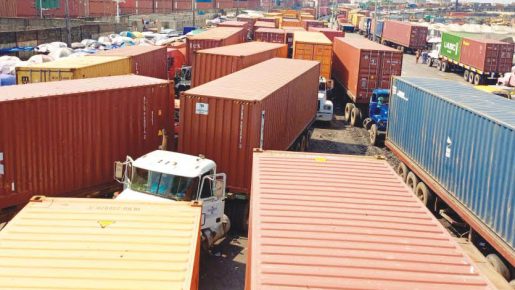Tanker owners, the Nigerian Association of Road Transport Owners (NARTO) has raised objections to the proposed integration of petroleum tankers into the electronic call-up system by the Nigerian Ports Authority (NPA) and the Trucks Transit Parks Limited (TTP). This initiative, aimed at alleviating gridlock on port access roads, has encountered resistance from NARTO, particularly regarding the associated charges linked with the platform.
Yusuf Othman, the National President of NARTO, expressed his concerns about the indiscriminate parking of petroleum tanker trucks on port access roads. Othman asserted that petroleum tanker owners are already grappling with operational losses and are unwilling to shoulder any additional financial burden associated with charges for integration into the electronic call-up system.
The Managing Director of TTP, Jama Onwubuariri, previously highlighted discussions among TTP, NPA, petroleum companies, and tanker drivers’ associations to integrate petroleum tankers into the Eto call-up system. This integration is intended to bring order to the port access roads, which have been plagued by congestion due to the absence of dedicated holding bays at numerous tank farms around the Tin Can Island Port corridor.
However, despite ongoing discussions, a resolution has not been reached, further contributing to the chaos on the port access roads. The situation is exacerbated by the lack of dedicated holding bays, causing petroleum tankers to congest the roads as they wait for their turn to load liquid cargoes.
NARTO acknowledges the need for a solution to address the challenges faced at the port corridors but vehemently rejects the idea of imposing charges for the integration of petroleum tankers into the Eto system. Othman argued that the financial capacity of petroleum tanker owners is already strained, with the cost of a tokunbo tanker truck amounting to N50 million. Operational costs are high, leaving little or no room for profit.
The financial breakdown provided by Othman sheds light on the economic challenges faced by petroleum tanker owners. He explained that the meager profit margins are further diminished by operational expenses, such as diesel costs, loading fees, and driver allowances. The delicate balance of finances leaves little room for any additional expenses, making the prospect of paying charges for integration into the electronic call-up system untenable for the tanker owners.
Conclusion: Tanker Owners

In contrast to container trucks using the electronic call-up system, where truckers bear the cost of ETO tickets and associated charges totaling N21,500 per truck, petroleum tanker owners argue that their financial constraints make such expenses unfeasible. Othman emphasized that any form of damage to the tanker, such as burst tires, results in additional losses and potential accidents.










